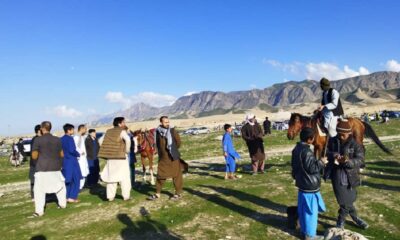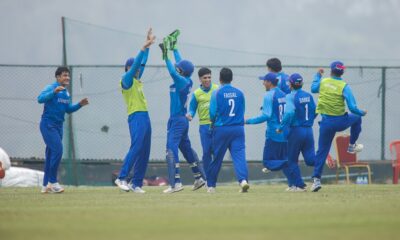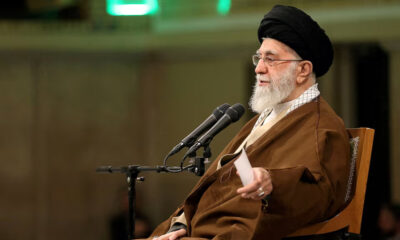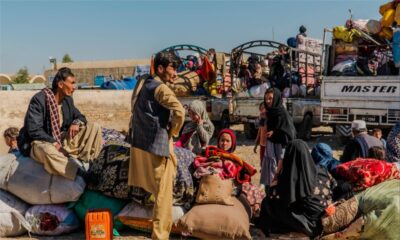Latest News
UNSC meets behind closed doors to discuss Sinirlioglu’s report on Afghanistan

The United Nations Security Council held a closed door session on Tuesday to assess the report on how the UN should address Afghanistan’s issues that was submitted by Feridun Sinirlioglu, the United Nations Special Coordinator for Afghanistan.
According to the assessment, the Islamic Emirate of Afghanistan’s (IEA) desire for recognition could prove crucial to creating an inclusive government and ensuring respect for women’s rights.
The report outlines a strategy for political engagement to reintegrate Afghanistan after the Taliban’s takeover in August 2021.
After having spent “extensive time” in Afghanistan, Sinirlioglu said the situation of women and girls – and the restrictions on education in particular – “was the single most common issue” raised in consultations.
Sinirlioglu said the IEA has tried to justify these restrictions as being part of Islam and Afghan tradition, though no similar restrictions exist in any other member state of the Organisation of Islamic Cooperation.
“The basic rights of women and girls, including the right to education and to work, and representation in public and political life, are not only fundamental obligations of a state but also critical to build state capacity for long-term development and economic growth and peace and security,” read the assessment.
“Any formal reintegration of Afghanistan into global institutions and systems will require the participation and leadership of Afghan women.”
The IEA has however repeatedly said the decrees issued have been to protect women’s basic rights.
In a statement issued last week in response to the UN’s assessment, the IEA said that hundreds of thousands of women continue to work in the public sector, specifically in education, health, security and other ministries. “Approximately 23.4% of all civil servants are women,” the document read.
The IEA also stated that a major initiative to promote women entrepreneurs has been launched; that it has rounded up thousands of street beggars – majority of which were women. These women now receive a regular stipend.
The IEA also said it has a strong central government, which extends to all corners of the country, and has unified Afghanistan politically and socially.
The assessment recommended that the UN pursue an inclusive form of governance and engage with all Afghans.
It said that pursuing “intra-Afghan dialogue” would enable progress towards the complete normalization and integration of Afghanistan into the international system.
“Afghanistan is a diverse, multi-ethnic, multi-sectarian, multi-linguistic and multicultural society,” the report said.
“The inclusion of all Afghan communities in the nation’s governance structures is central to the social and political stability of Afghanistan.”
Reports meanwhile indicate that in the meeting behind closed doors at the UN Security Council on Tuesday, Malta’s ambassador to the UN, Vanessa Frazier, highlighted concerns over the political, humanitarian, security and human rights situation in Afghanistan.
“This was in response to the independent assessment, produced by Feridun Sinirlioglu, which was tasked to consider the current challenges faced by Afghanistan,” Ms Frazier said.
Amongst these concerns, Malta said, were the lack of inclusive governance, the humanitarian crisis, the continued security risk posed by terrorist groups, and the deeply concerning human rights situation, including of women and girls.
However, the UAE’s National reported that in an open letter to the UN, 71 Afghan civil society organizations, networks and coalitions in Afghanistan and in exile, expressed “deep reservations” about the report.
They found the assessment to be “influenced by the security and geopolitical interests of the member states and regional powers, rather than the need and plight of the Afghanistan people”.
They believe the report is developed based on a “pre-assumed policy of appeasement and engagement” with the IEA without considering recommendations of women, civil society and other groups, the National reported.
Latest News
Health Minister slams deportations, says neighbors cannot accept Afghanistan’s progress
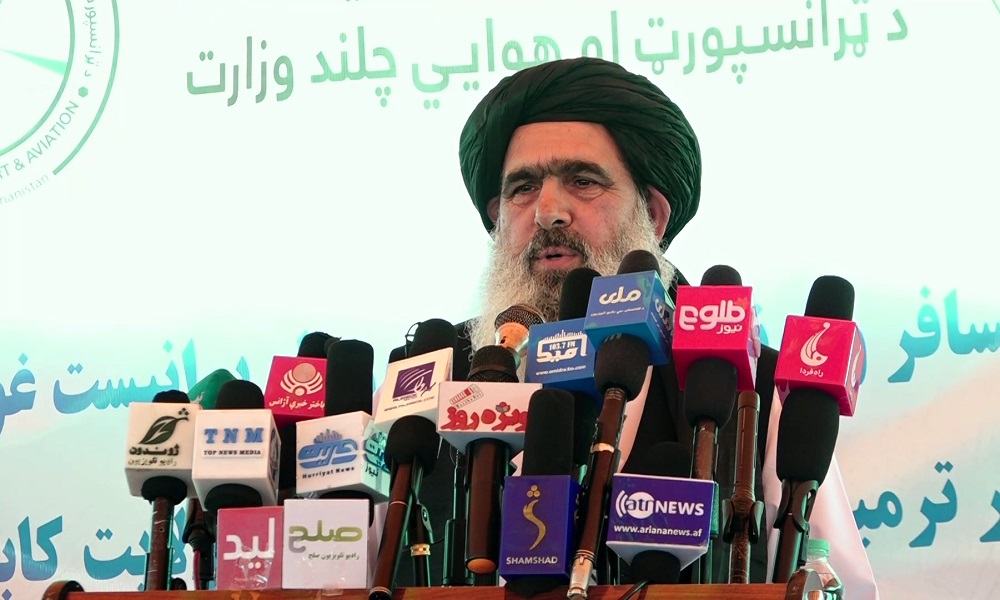
Acting Minister of Public Health Noor Jalal Jalali said on Sunday that Afghanistan’s neighbors cannot tolerate Afghanistan’s progress, so they harass migrants, confiscate their property and forcibly expel them.
“One has built a house and a life with his own power, but he is told that he has no right to take it with him,” Noor Jalal Jalali said at an event in Kabul. “He is beaten, humiliated and taken to a vehicle and is told to leave. Our brothers should return to their country even with the little money they have.”
Pakistan plans to expel three million Afghans from the country this year. Arrests have already begun in several cities.
Local officials in Nangarhar province say 316 families have entered the country through the Torkham crossing in the past three days.
“All the committees are ready,” said Azizullah Mustafa, deputy governor of Nangarhar. “In the last two or three days, 316 families have been expelled. There is the service committee. We have also contacted the center. Allah willing, we have the facilities. We will also meet with institutions to coordinate the process.”
About 845,000 Afghans have left Pakistan over the past 18 months, figures from the International Organization for Migration show.
The deportations come despite criticism from human rights groups.
Latest News
Thousands of local tourists flock to Balkh over Eid-ul-Fitr
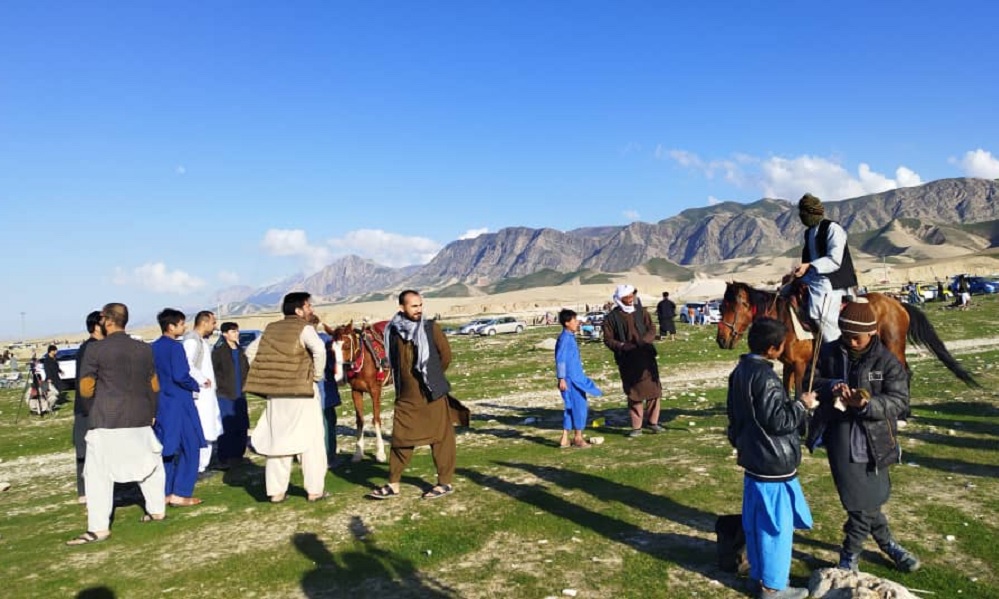
More than 12,000 local tourists, along with 21 foreigners, visited Balkh province in northern Afghanistan over Eid-ul-Fitr, Balkh Information and Culture Department officials confirmed.
According to the officials, the tourists visited recreational areas and historical sites during the three-day Eid holiday period.
Tourists visiting the province said they were happy about the improved security situation but called for more recreational areas.
One popular area was Marmul district, which lies about 20 km west of Mazar-e-Sharif, the provincial capital. Visitors said however they would have liked to see more restaurants, mosques, markets and other facilities.
Local officials in Balkh said efforts are being made to create facilities in recreational areas in the province.
In addition to Marmul, other popular destinations in Balkh for visitors this Eid was the Qosh Tepa Canal, Dasht-e-Shadian, Amu River and Chashma-e-Khaja Sikandar.
Latest News
UN rights experts call on Pakistan to stop removal process of Afghan refugees
The experts urged Islamabad to immediately stop mass internal relocations, deportations, arrests, evictions, intimidation and other pressures on Afghans
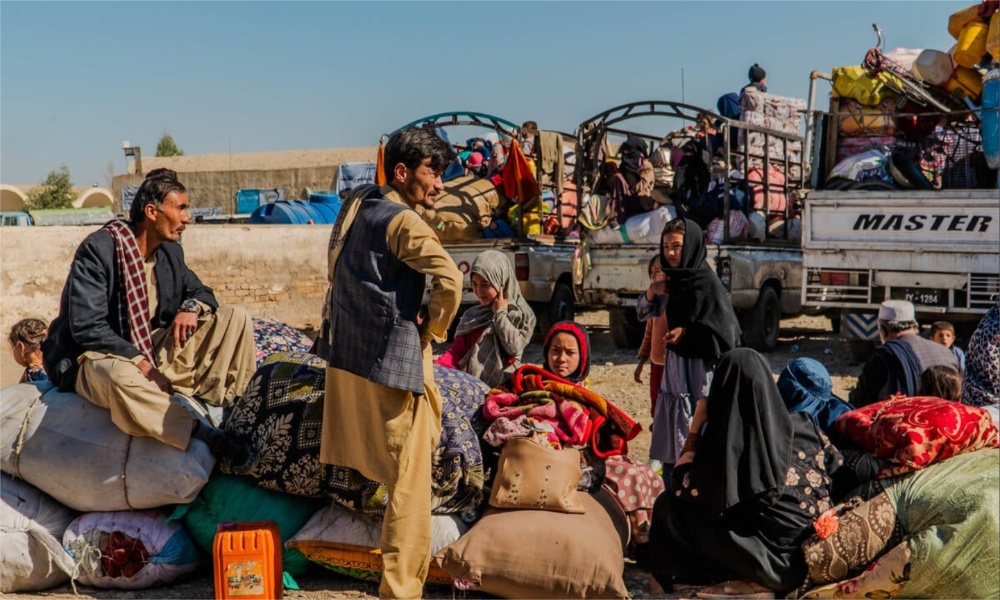
UN human rights experts have called on the Pakistan government to stop their plans to forcibly remove Afghans from the cities of Islamabad and Rawalpindi, nor to deport them to Afghanistan.
According to a statement issued on Friday, the UN experts (as listed below) called on Pakistan to continue its important role as a neighboring country with a long history of hosting Afghan refugees.
The deadline for their voluntary departure was set for 31 March, but Islamabad moved the deadline by a few days to take Eid-ul-Fitr into account.
“Millions of Afghans in Pakistan are at risk of being pushed back to Afghanistan without regard for their genuine protection concerns – including gender-based violence and the systematic dismantling of the rights of women and girls – in violation of international human rights law and refugee law, and disregarding UNHCR’s non-return advisory,” the experts said.
“We urge Pakistan to immediately stop mass internal relocations, deportations, arrests, evictions, intimidation and other pressures on Afghans to cross the border into Afghanistan, and to uphold the absolute and non-derogable principle of non-refoulement,” they said.
The experts expressed particular concern about the gendered and intersectional impact.
The UN experts have repeatedly spoken out against Pakistan’s Illegal Foreigners’ Repatriation Plan of September 2023, which has already pressured hundreds of thousands of Afghans to uproot their lives and return to Afghanistan.
Ahead of the 31 March deadline, the UN documented a worrying increase in arrests of Afghans. Many desperate Afghans have contacted the experts, fearing persecution by the Taliban in Afghanistan if they are forced to return.
“The most vulnerable are Afghan women, girls, LGBTI persons, ethnic and religious minorities, former government officials and security personnel, human rights defenders, and media workers,” the experts said.
“Children, especially unaccompanied, are at heightened risk of trafficking, child marriage and abuse, while persons with disabilities and older persons are also particularly vulnerable. They should all be individually assessed.”
The experts expressed concern about returns of Afghans to Afghanistan from other countries, potentially contravening international human rights and refugee law.
The experts also acknowledged security risks, including terrorist attacks in Afghanistan, as well as Pakistan.
The experts noted that many Afghans who had left for Pakistan, having been given reasonable expectations of being resettled in a third country, had their dreams of a secure future shattered by the sudden halt of resettlement programmes.
They stressed that funding cuts will reduce the ability of the de facto authorities in Afghanistan, together with humanitarian agencies, to support a large influx of people from neighboring countries.
“Abrupt and drastic funding cuts by donors are already having a severe impact on much-needed humanitarian assistance to Afghans,” the experts said.
“Given the deteriorating human rights situation in Afghanistan, durable solutions are needed for Afghans outside the country, with strong support from the broader international community.”
The experts are as follows:
Richard Bennett, Special Rapporteur on the human rights situation in Afghanistan; Siobhán Mullally, Special Rapporteur on trafficking in persons, especially women and children; Laura Nyirinkindi (Chair), Claudia Flores (Vice-Chair), Dorothy Estrada Tanck, Ivana Krstić, and Haina Lu, Working group on discrimination against women and girls; Ben Saul, Special Rapporteur on the promotion and protection of human rights and fundamental freedoms while countering terrorism; Reem Alsalem, Special Rapporteur on violence against women and girls, its causes and consequences; and Balakrishnan Rajagopal, Special Rapporteur on the right to adequate housing.
-

 Latest News5 days ago
Latest News5 days agoMinistry of Economy calls on US to release Afghanistan’s frozen funds
-

 Latest News4 days ago
Latest News4 days agoPakistan ‘extends’ deadline for a week for Afghans to leave the country
-

 World5 days ago
World5 days agoAs Iran tensions build, US military moves warplanes to reinforce Middle East
-

 Sport5 days ago
Sport5 days agoIPL 2025: Batters in race for prestigious Orange Cap
-
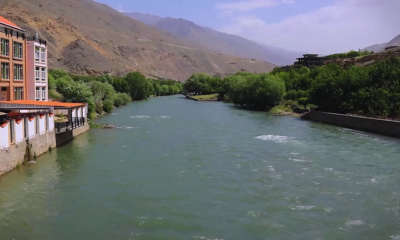
 Latest News4 days ago
Latest News4 days agoPanjshir to Kabul water conduit project ‘waiting for budget approval’
-
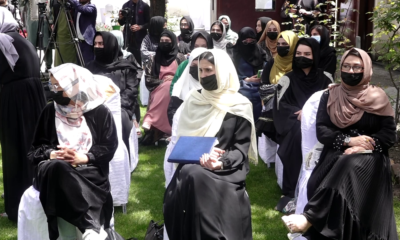
 Latest News4 days ago
Latest News4 days agoFemale journalists complain about lack of access to accurate and timely information
-

 Business4 days ago
Business4 days agoExports to Pakistan grind to a halt over faulty scanner at Torkham
-

 Regional4 days ago
Regional4 days agoMilitary confrontation seems inevitable if no new Iran nuclear deal, France says




